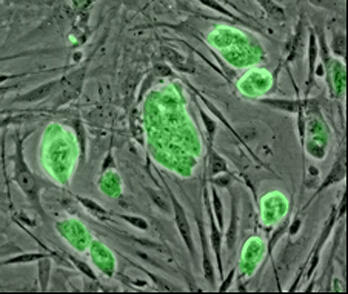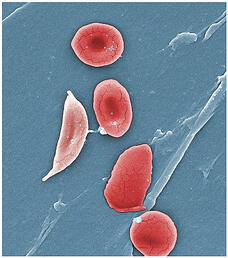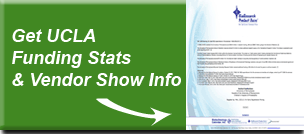Two UCLA Researchers recently received major multimillion dollar stem cell grants to help bring the benefits of new stem cell research to patients. These grants will fund two groundbreaking clinical trials set to begin in the beginning of 2014.
The new stem cell grants went to researchers at the UCLA Eli and Edythe Broad Center of Regenerative Medicine and Stem Cell Research. The funding was awarded by the California Institute of Regenerative Medicine (CIRM), a major California agency dedicated to advancing stem cell research. The agency gave out two grants to UCLA researchers totaling nearly $21 million.
One grant of almost $7 million went to a team of researchers led by Dr. Dennis Slamon and Dr. Zev Wainberg from UCLA. This funding will help translate research on cancer stem cell therapies into a new cancer treatment technique. The second grant totaled nearly $14 million and was awarded to UCLA's Dr. Donald Kohn. This funding will go towards the development of a stem cell gene therapy to combat sickle cell disease.
 (Image of Stem Cells with florescent marker)
(Image of Stem Cells with florescent marker)
These two grants will greatly advance the research of these two teams of scientists and aid in the translation of their basic research innovations into real therapies and treatments that can directly help patients.
A novel approach to cancer treatment
Dr. Slamon and Dr. Wainberg’s research is based in what has come to be called the "cancer stem-cell hypothesis." This hypothesis holds that the underlying cause that promotes tumor growth and makes tumors resistant to existing cancer treatments are cancer stem cells. These cells are thought to be different in nature than standard cancer cells and are not susceptible to treatments. Furthermore, the mechanics of these cells can explain why tumors become resistant to therapies. The process of killing cancerous cells through various therapies causes a process called “cell-fate decision,” in which some cells survive and become resistant to the therapy. These cancer stem cells cause the regeneration of the tumor.
The research team at UCLA has developed a technique that targets an enzyme called Polo-like kinase 4 that is found in cancer stem cells. They have shown that targeting this enzyme can block the regenerative capacities of cancer stem cells, thus inhibiting tumor growth and regeneration after treatment.
A promising new therapy for sickle cell disease
Sickle cell disease is caused by an inherited genetic mutation that causes some of a patient’s red blood cells to transform from their normal soft round form into a stiff sickle shape. These sickles get stuck in tiny blood vessels, called capillaries, and cut off blood flow to many of a patient’s major organs.
 (Image of sickle cell next to normal red blood cells. Courtesy of Conexions)
(Image of sickle cell next to normal red blood cells. Courtesy of Conexions)
An existing treatment for very serious cases of this disease is to transplant hematopoietic (blood-producing) stem cells from a donor’s bone marrow so that the patient can begin to produce normal, non-sickled, red blood cells. However, although this treatment is very effective, it carries a serious risk. Most patients reject the donated stem cells causing major complications and preventing the therapy from being effective.
Dr. Donald Kohn’s research team has developed a novel approach that avoids the problems of rejection. His team has developed a technique that allows them to insert an anti-sickling gene into a patient’s own hematopoietic stem cells and then reintroduce these cells to the patient. This means that the patient is functionally donating stem cells to themselves, thus doing away with all the problems of rejection that occur from stem cells donated by another person.
These two major grants will greatly advance the exciting stem cell research going on at UCLA. The two research teams from the UCLA Broad Stem Cell Research Center are just two examples of the many vibrant stem cell research projects being pursued at UCLA. Dr. Owen Witte, director of the UCLA Broad Stem Cell Research Center, summed up the broader significance of these two grants: "The CIRM support demonstrates that our multidisciplinary center is at the forefront of translating basic scientific research into new drug and cellular therapies that will revolutionize medicine."
Biotechnology Calendar, Inc. will be holding its Semiannual UCLA Biotechnology Vendor Showcase™ Event on April 4, 2014. This life science marketing event is an excellent opportunity for life scientists and lab equipment specialists to take advantage of the unique research culture around UCLA and network around the latest developing lab technologies.
For information on exhibiting at this life science marketing event and a 1-page funding report, click on the button below.


